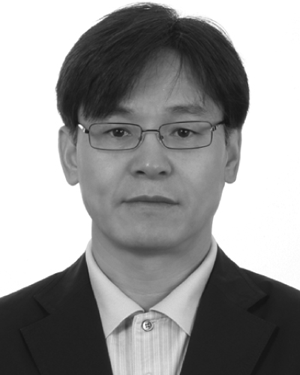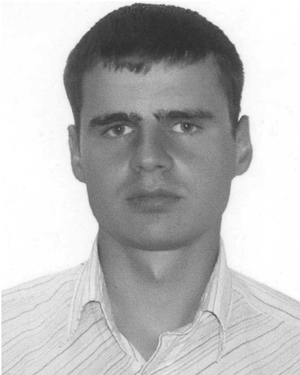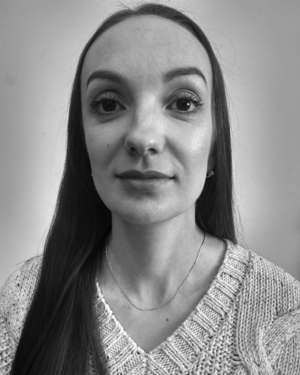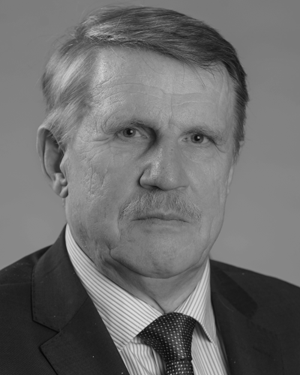Abstract:
A mathematical model is proposed for the operation of a cell in a mobile communication network with moving users. The cell is divided into several zones distinguished by ...Show MoreMetadata
Abstract:
A mathematical model is proposed for the operation of a cell in a mobile communication network with moving users. The cell is divided into several zones distinguished by the strength of the signal and, consequently, by the transmission rate. The process of users activation in various zones is defined by the marked Markovian arrival process. After activation, a user can move and transit to other zones or to another cell. The service rate of an arbitrary user depends on the zone where the user is currently located and the total number of active users in the cell. When the total bandwidth required by all active users exceeds the bandwidth of the base station, a proportional reduction of the bitrate provided to each user (bandwidth sharing) is applied. The key performance indicators of the system are computed, and illustrative numerical examples are presented.
Published in: IEEE Transactions on Wireless Communications ( Volume: 19, Issue: 2, February 2020)
Funding Agency:

Department of Industrial Engineering, Sangji University, Wonju, South Korea
Chesoong Kim (M’16) received the Ph.D. degree in engineering with the Department of Industrial Engineering, Seoul National University, in 1993. He was a Visiting Scholar with the Department of Mechanical Engineering, The University of Queensland, Australia, from September of 1998 to August of 1999. He was a Foreign Scientist with the School of Mathematics and Statistics, Carleton University, Canada, from July of 2003 to A...Show More
Chesoong Kim (M’16) received the Ph.D. degree in engineering with the Department of Industrial Engineering, Seoul National University, in 1993. He was a Visiting Scholar with the Department of Mechanical Engineering, The University of Queensland, Australia, from September of 1998 to August of 1999. He was a Foreign Scientist with the School of Mathematics and Statistics, Carleton University, Canada, from July of 2003 to A...View more

Department of Applied Mathematics and Computer Science, Belarusian State University, Minsk, Belarus
Department of Applied Probability and Informatics, Peoples’ Friendship University of Russia (RUDN University), Moscow, Russia
Sergei A. Dudin was graduated from Belarusian State University in 2007. He received the Ph.D. degree in system analysis, control and information processing from Belarusian State University, in 2010. He is currently a leading scientific Researcher with Research Laboratory of Applied Probabilistic Analysis, Belarusian State University. He is also part time with the Peoples’ Friendship University (RUDN), Russia. He published...Show More
Sergei A. Dudin was graduated from Belarusian State University in 2007. He received the Ph.D. degree in system analysis, control and information processing from Belarusian State University, in 2010. He is currently a leading scientific Researcher with Research Laboratory of Applied Probabilistic Analysis, Belarusian State University. He is also part time with the Peoples’ Friendship University (RUDN), Russia. He published...View more

Department of Applied Mathematics and Computer Science, Belarusian State University, Minsk, Belarus
Department of Applied Probability and Informatics, Peoples’ Friendship University of Russia (RUDN University), Moscow, Russia
Olga S. Dudina was graduated from Belarusian State University in 2007. She received the Ph.D. degree in probability theory and mathematical statistics from Belarusian State University in 2010. Her Ph.D. dissertation received the Award as the Best Dissertation of the year in Republic of Belarus in Natural Sciences. She is currently a leading scientific Researcher with Research Laboratory of Applied Probabilistic Analysis, ...Show More
Olga S. Dudina was graduated from Belarusian State University in 2007. She received the Ph.D. degree in probability theory and mathematical statistics from Belarusian State University in 2010. Her Ph.D. dissertation received the Award as the Best Dissertation of the year in Republic of Belarus in Natural Sciences. She is currently a leading scientific Researcher with Research Laboratory of Applied Probabilistic Analysis, ...View more

Department of Applied Mathematics and Computer Science, Belarusian State University, Minsk, Belarus
Department of Applied Probability and Informatics, Peoples’ Friendship University of Russia (RUDN University), Moscow, Russia
Alexander N. Dudin received the Ph.D. degree in probability theory and mathematical statistics from Vilnius University, in 1982 and the Doctor of Science degree from Tomsk University, in 1992. He is currently the Head of Laboratory of Applied Probabilistic Analysis, Belarusian State University, a Professor of the Probability Theory and Mathematical Statistics Department, and the Director of the Center of Applied Probabili...Show More
Alexander N. Dudin received the Ph.D. degree in probability theory and mathematical statistics from Vilnius University, in 1982 and the Doctor of Science degree from Tomsk University, in 1992. He is currently the Head of Laboratory of Applied Probabilistic Analysis, Belarusian State University, a Professor of the Probability Theory and Mathematical Statistics Department, and the Director of the Center of Applied Probabili...View more

Department of Industrial Engineering, Sangji University, Wonju, South Korea
Chesoong Kim (M’16) received the Ph.D. degree in engineering with the Department of Industrial Engineering, Seoul National University, in 1993. He was a Visiting Scholar with the Department of Mechanical Engineering, The University of Queensland, Australia, from September of 1998 to August of 1999. He was a Foreign Scientist with the School of Mathematics and Statistics, Carleton University, Canada, from July of 2003 to August of 2004. He was also a Visiting Professor with the Department of Industrial Engineering, University of Washington, USA, from August of 2004 to August of 2005. He had scientific visits to Belarusian State University, University of Debrecen, and Azerbaijan National Academy of Sciences, respectively. He is currently a Full Professor of business administration, Department of Industrial Engineering, Sangji University. He has published around 100 articles in internationally refereed journals. His current research interests are in stochastic process, queueing theory with particular emphasis on computer and wireless communication network, and queueing network modeling and their applications.
Chesoong Kim (M’16) received the Ph.D. degree in engineering with the Department of Industrial Engineering, Seoul National University, in 1993. He was a Visiting Scholar with the Department of Mechanical Engineering, The University of Queensland, Australia, from September of 1998 to August of 1999. He was a Foreign Scientist with the School of Mathematics and Statistics, Carleton University, Canada, from July of 2003 to August of 2004. He was also a Visiting Professor with the Department of Industrial Engineering, University of Washington, USA, from August of 2004 to August of 2005. He had scientific visits to Belarusian State University, University of Debrecen, and Azerbaijan National Academy of Sciences, respectively. He is currently a Full Professor of business administration, Department of Industrial Engineering, Sangji University. He has published around 100 articles in internationally refereed journals. His current research interests are in stochastic process, queueing theory with particular emphasis on computer and wireless communication network, and queueing network modeling and their applications.View more

Department of Applied Mathematics and Computer Science, Belarusian State University, Minsk, Belarus
Department of Applied Probability and Informatics, Peoples’ Friendship University of Russia (RUDN University), Moscow, Russia
Sergei A. Dudin was graduated from Belarusian State University in 2007. He received the Ph.D. degree in system analysis, control and information processing from Belarusian State University, in 2010. He is currently a leading scientific Researcher with Research Laboratory of Applied Probabilistic Analysis, Belarusian State University. He is also part time with the Peoples’ Friendship University (RUDN), Russia. He published the monograph and 80 articles, including more than 40 articles sited in Scopus. His main fields of interests are queueing systems with correlated arrival flows and controlled tandem models.
Sergei A. Dudin was graduated from Belarusian State University in 2007. He received the Ph.D. degree in system analysis, control and information processing from Belarusian State University, in 2010. He is currently a leading scientific Researcher with Research Laboratory of Applied Probabilistic Analysis, Belarusian State University. He is also part time with the Peoples’ Friendship University (RUDN), Russia. He published the monograph and 80 articles, including more than 40 articles sited in Scopus. His main fields of interests are queueing systems with correlated arrival flows and controlled tandem models.View more

Department of Applied Mathematics and Computer Science, Belarusian State University, Minsk, Belarus
Department of Applied Probability and Informatics, Peoples’ Friendship University of Russia (RUDN University), Moscow, Russia
Olga S. Dudina was graduated from Belarusian State University in 2007. She received the Ph.D. degree in probability theory and mathematical statistics from Belarusian State University in 2010. Her Ph.D. dissertation received the Award as the Best Dissertation of the year in Republic of Belarus in Natural Sciences. She is currently a leading scientific Researcher with Research Laboratory of Applied Probabilistic Analysis, Belarusian State University. She is also with the Peoples’ Friendship University, Russia. Her main fields of interests are queueing tandem queueing models with correlated arrival flows and non-markovian queueing systems.
Olga S. Dudina was graduated from Belarusian State University in 2007. She received the Ph.D. degree in probability theory and mathematical statistics from Belarusian State University in 2010. Her Ph.D. dissertation received the Award as the Best Dissertation of the year in Republic of Belarus in Natural Sciences. She is currently a leading scientific Researcher with Research Laboratory of Applied Probabilistic Analysis, Belarusian State University. She is also with the Peoples’ Friendship University, Russia. Her main fields of interests are queueing tandem queueing models with correlated arrival flows and non-markovian queueing systems.View more

Department of Applied Mathematics and Computer Science, Belarusian State University, Minsk, Belarus
Department of Applied Probability and Informatics, Peoples’ Friendship University of Russia (RUDN University), Moscow, Russia
Alexander N. Dudin received the Ph.D. degree in probability theory and mathematical statistics from Vilnius University, in 1982 and the Doctor of Science degree from Tomsk University, in 1992. He is currently the Head of Laboratory of Applied Probabilistic Analysis, Belarusian State University, a Professor of the Probability Theory and Mathematical Statistics Department, and the Director of the Center of Applied Probabilistic Analysis, RUDN University, Moscow. He is an author of more than 400 publications, including more than 120 articles in top level Journals, such as the Journal of Applied Probability, Queueing Systems, Performance Evaluation, the IEEE Transactions on Communications, Annals of Operations Research, Computers and Operations Research, Computer Networks, and IEEE Communications Letters. He serves as a member of IPC of several international conferences. He was invited for lecturing and research to USA, U.K., Germany, France, The Netherlands, Japan, South Korea, India, Russia, China, Italy, and Sweden. In 2013, he was the recipient of the Scopus Award Belarus in mathematics. He has been the Chairman of IPC of Belarusian Winter Workshops in Queueing Theory which is held since 1985 and the Chairman of IPC of the conference named after A.F. Terpugov since 2014. Since 2017, he has been with the Applied Mathematics and Communications Technology Institute, Peoples’ Friendship University of Russia (RUDN University).
Alexander N. Dudin received the Ph.D. degree in probability theory and mathematical statistics from Vilnius University, in 1982 and the Doctor of Science degree from Tomsk University, in 1992. He is currently the Head of Laboratory of Applied Probabilistic Analysis, Belarusian State University, a Professor of the Probability Theory and Mathematical Statistics Department, and the Director of the Center of Applied Probabilistic Analysis, RUDN University, Moscow. He is an author of more than 400 publications, including more than 120 articles in top level Journals, such as the Journal of Applied Probability, Queueing Systems, Performance Evaluation, the IEEE Transactions on Communications, Annals of Operations Research, Computers and Operations Research, Computer Networks, and IEEE Communications Letters. He serves as a member of IPC of several international conferences. He was invited for lecturing and research to USA, U.K., Germany, France, The Netherlands, Japan, South Korea, India, Russia, China, Italy, and Sweden. In 2013, he was the recipient of the Scopus Award Belarus in mathematics. He has been the Chairman of IPC of Belarusian Winter Workshops in Queueing Theory which is held since 1985 and the Chairman of IPC of the conference named after A.F. Terpugov since 2014. Since 2017, he has been with the Applied Mathematics and Communications Technology Institute, Peoples’ Friendship University of Russia (RUDN University).View more


